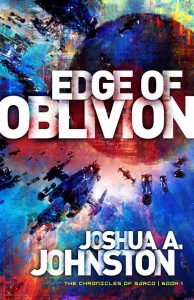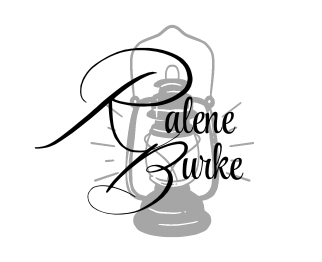
When I decided to plunge into the work of novel writing, one of the first things I did was take stock of how those already in the business did things. I scoured websites, stalked social media sites, lurked inside launch parties, and otherwise gathered as much information as I could. I knew that writing a book was one thing, but connecting with readers and generating a following was something entirely different.
As I was writing specifically in the realm of Christian speculative fiction, I focused on those authors … and as time went on, I became aware of a general trend. The majority of the writers were women, as were their readers, and there was often a strong human connection between the two groups. In fact, in some cases their reader base was so devoted that there were entire Facebook groups devoted just to reading the author’s book and then talking about it with the author.
All of these things are absolutely fantastic. These authors have done a sensational job of bonding with their readers, cultivating community, and building on that to create cheerleaders for their (very good) books. It’s an awesome snowball effect to behold, and I’m excited for what they’ve been able to do, in some cases in a relatively short period of time.
It also creates unique challenges for this male, introvert, thinking author.
(I’m an INTJ, for those of your Myers-Briggs people keeping score at home.)
It’s not just a stereotype to say that women are a major force in the world of fiction; in a recent story, Christianity Today confirmed statistically what most of us have observed anecdotally. Women read more than men, gather to talk about reading more than men (i.e. book clubs), and hone in on Christian fiction more than men. Of course, there are men who are successful in both the broader category of fiction and the more specific realm of Christian speculative fiction (including a few men with my own publisher, Enclave), so I know can be done.
Figuring out, for me, how to get there has been a process. Part of that process has determining where I fit in. How do I connect with readership? How do I, as a science fiction writer, build bridges with both male and female readers? How do I push the door open so that those readers will take a chance on my writing? Most importantly, how do I accomplish all of this while still staying authentic to who I am – as a thinking introvert in a business that seems to revolve around human connections?
The good news for me is that, slowly but surely, I’ve been working through the answers. I’ve been blessed with a core of great people who have helped me through the process, from beta readers to launch team. Many of them (including my wife and my editor) have helped stretch my writing in ways that helps balance my thinking, plot-oriented nature with the nuances of personal relationships and character development.
As a result, I’ve had wonderful people – men and women – from all walks of life who have taken a risk on my writing and given me humbling comments. Some of them are sci-fi fans from outside Christian fiction altogether; others are readers of some of the same dazzling authors I talked about earlier. And as I continue to write more short stories and novels in my debut series, I’m ever hopeful that I’ll continue to find new doors to sail through.
Relationships, torpedoes, and all.
—
 Author Bio:
Author Bio:
Joshua was raised on science fiction television and film before being introduced, in his teenage years, to the wider universe of science fiction literature. In addition to his daily work teaching American history and American government, he is an occasional writer on a variety of topics, including video games and parenting.
His debut novel, Edge of Oblivion, released with Enclave Publishing (now Gilead Publishing) in April 2016. Joshua lives in St. Louis, Missouri, with his wife, Rachael, their two daughters, and a highly xenophobic cat.
He can be found online at www.joshuaajohnston.com.






I can relate. From watching other authors as I figure out this social media stuff to connecting with readers. Still learning! I’ve taken those tests and have scored at INTJ the most, sometimes I’ve scored at INFJ. Perhaps that is why as well? 🙂
Wish you well on your endeavors!
I think there may be something to that. NTs connect more over abstract ideas than human connections, so it’s a process …
You’re unique. Me, too. I’m the rare extroverted writer. And I took the Myers-Briggs test years ago. I have no memory of what letters it gave me. Some kind of extroverted intuitive feeling? Anyway, while I enjoy the writing process, lonely as it can be, I’m also excited about and enjoy the marketing process. I can’t wait to host my first book release party on Facebook! And I love show-up-in-person book parties and/or signings!
Keep going Josh – your uniqueness is so needed! Congrats on your novel! You have a fabulous cover.
It’s a good reminder of our own individual strengths and weaknesses. I know an ENFJ who wrote a book (nonfiction) and while the writing was really hard for her, she excels at connecting with people she speaks with.
It is so great to hear that you are exploring bridging the gaps between male and female readership. I mainly read books written for and/or by men so it is sad to me that these books do not have a bigger readership in Christian fiction. I LOVED Edge of Oblivion and I can’t wait to read your next book. 🙂
Thanks, Katelyn. As I continue to work on this, I’m also really excited to see what great things Gilead does in the market.
I am a fellow Male Introvert Thinker Author, also a musician. I have two of the worst disabilities as a writer and musician, slow reader and terrible memory. Yet we keep plugging on. Always on the edge the next step, I feel. Good post Joshua.